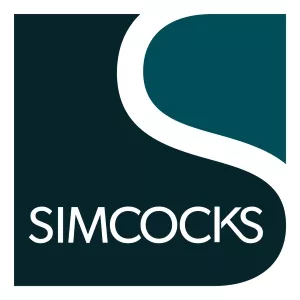- within Technology topic(s)
- in United States
- within Wealth Management and Family and Matrimonial topic(s)
The following article by Kevin O'Loughlin was published in the STEP Journal, Issue 4 2025.
The area of crypto-asset law and regulation is a rapidly evolving one. This article outlines recent developments in the Isle of Man.
This article is relevant to persons considering a crypto business in the Isle of Man, and Isle of Man persons (including trustees) considering investing in crypto-assets.
Crypto-asset law
The common law regards crypto-assets as property1. Some uncertainty exists whether crypto-assets would be classified as things in action, in the common law's traditional division of personalty (i.e. property other than land) into things in possession and things in action, or as a form of intangible tertium quid2.
The Isle of Man High Court has granted an injunction in relation to the contents of a crypto-asset "wallet"3. The injunction was lifted at an interlocutory hearing (due to AML/CFT CDD and supervision issues), but no doubt that the wallet was property arose in the case.
Crypto-assets could in principle be held on trust under Isle of Man law, though there would be other considerations for a trustee acquiring crypto-assets.
As yet, legislation similar to the UK Property (Digital Assets etc) Bill has not been introduced. That Bill would, if enacted, provide that a thing, including if digital or electronic in nature, is not prevented from being an object of personal property rights merely because it is neither a thing in possession or a thing in action. A similar Bill may be forthcoming in the Isle of Man in due course, as the legal positions appear comparable
Crypto-asset regulation
The Isle of Man has several regulatory regimes in the financial services area.
These include the Financial Services Act 2008 (which regulates investment services), the Collective Investment Schemes Act 2008 (which regulates CISs) and the Designated Businesses (Registration and Oversight) Act 2015.
The DBROA 2015 is a framework for oversight of AML/CFT compliance. In general terms, crypto-asset activities are regulated only within the DBROA2015.
The Isle of Man Financial Services Authority in 2024 consulted in relation to changing the regulation of crypto-asset activities. It decided to maintain the approach of regulation under the DBROA 2015 only, but to keep the matter under review and monitor developments in international standards and other jurisdictions.
The IoMFSA has since published guidance in relation to crypto-assets and the regulatory perimeter. Essentially this states that the FSA looks to the substance of the activity being undertaken rather than the form.
So if, for example, a crypto-asset represents rights to equity or shares in a company's profits, the crypto-asset would probably be regarded as a security or a derivative and so within the FSA08. On the other hand, crypto-assets which are endogenous (i.e. rights unto themselves only, such as Bitcoin) would not be a security.
Similarly, a crypto-asset that represents underlying assets could be a unit in a CIS. Crypto-assets which are endogenous would not themselves be units in a CIS, as there is no underlying property, but an arrangement that invests in crypto-assets could be a CIS.
The IoMFSA guidance indicates that, if a crypto-asset is to amount to (and be regulated as) e-money within the FSA08, it must have several characteristics, including holding fiat monetary value and convertibility into fiat.
Crypto-asset tax reporting
In April 2021 the G20 mandated the OECD to develop a framework providing for the automatic exchange of tax-relevant information on crypto-assets. In August 2022, the OECD approved the Crypto-Asset Reporting Framework (CARF), a new tax transparency framework which provides for the automatic exchange of tax information on transactions in crypto-assets in a standardised manner with the jurisdictions of residence of taxpayers4.
The Isle of Man has committed to implementing the CARF5. The government intends to introduce implementing legislation before the end of 2025. It is anticipated that exchanges of information would commence by 2027.
Conclusion
Isle of Man law will have no difficulty with crypto-assets as property (i.e. things in action), including as part of trust assets.
At present, the regulation of crypto-asset activities relates mainly to AML/CFT, however that may change in coming years depending on international standards and developments.
The Isle of Man has a long-standing policy of positive engagement with global standards to combat ML/FT, and can be expected to be an early implementer of CARF.
Footnotes
1 E.g. Fetch.ai Ltd v Persons Unknown [2021] EWHC 2254 (Comm) at [9], a case which related to various cryptocurrencies
2 The Law of Personal Property, Bridge et al, 3rd ed. paragraph 8-049
3 Caldwell and others v CasinoCoin Foundation and others (judgment of 31 August 2021)
The content of this article is intended to provide a general guide to the subject matter. Specialist advice should be sought about your specific circumstances.


